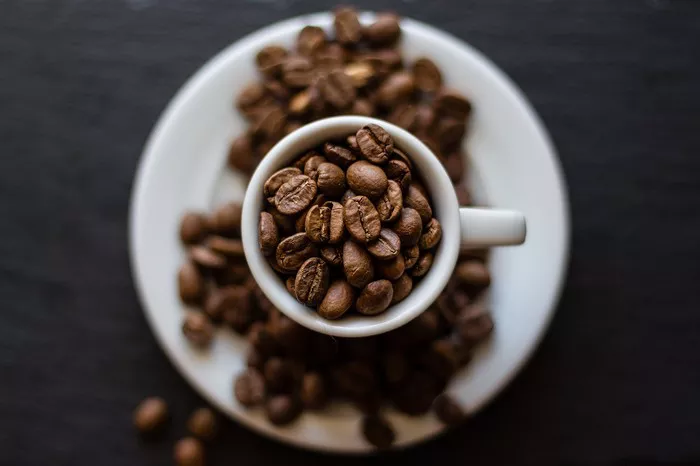Coffee is a beloved beverage around the world. Its complex flavors and aromas can be a delightful experience. However, if your coffee tastes bitter, it can be a major disappointment. Understanding why coffee can taste bitter is essential for improving your coffee experience. This article will explore 8 common reasons why your coffee might taste bitter and provide tips to help you make a smoother, more enjoyable cup.
1. Over-Roasted Coffee Beans
Understanding Coffee Roasting
Coffee beans are roasted to develop their flavor profile. The roasting process transforms green coffee beans into the rich, aromatic beans used for brewing. However, over-roasting can lead to a bitter taste.
Effects of Over-Roasting
When coffee beans are roasted too long or at too high a temperature, they can develop a burnt or overly charred flavor. This burnt taste can translate into bitterness in your coffee.
How to Avoid Over-Roasting
To avoid this, purchase coffee from a reputable source that controls the roasting process. Opt for medium roasts if you prefer a balanced flavor. If you roast your own beans, monitor the roasting time and temperature carefully.
2. Too Much Coffee Grounds
The Importance of Coffee-to-Water Ratio
The ratio of coffee grounds to water is crucial for brewing a balanced cup of coffee. Using too many coffee grounds can result in a bitter taste.
Impact of Excess Grounds
When you use too much coffee, the water extracts more compounds from the grounds, including bitter ones. This over-extraction can overwhelm the coffee’s natural flavors and lead to bitterness.
Tips for the Right Ratio
Typically, a good starting point is one to two tablespoons of coffee grounds per six ounces of water. Adjust according to your taste preference. Using a kitchen scale to measure your coffee grounds can help ensure consistency.
3. Incorrect Brewing Time
Brewing Time and Extraction
The brewing time affects how much of the coffee’s flavor compounds are extracted. Brew too long, and you risk over-extraction, which can make your coffee taste bitter.
Signs of Over-Extraction
If your coffee tastes bitter and harsh, it might be over-extracted. This happens when the coffee is in contact with water for too long.
Optimal Brewing Times
For drip coffee makers, a brewing time of 4-5 minutes is usually ideal. Espresso machines typically require 25-30 seconds of extraction time. Adjust your brewing time based on your method and taste preferences.
4. Water Temperature Issues
Role of Water Temperature in Brewing
The temperature of the water used to brew coffee can significantly impact its flavor. Water that is too hot can lead to bitterness.
Effects of Hot Water
Water temperatures above 205°F (96°C) can cause over-extraction of bitter compounds from the coffee grounds. This can result in a harsh, unpleasant taste.
Ideal Brewing Temperatures
For most coffee brewing methods, the ideal water temperature is between 195°F and 205°F (90°C to 96°C). Use a thermometer to check your water temperature or let the water sit for a few seconds after boiling before brewing.
See Also: Why Espresso Is Bitter
5. Poor Coffee Bean Quality
Impact of Coffee Bean Quality
The quality of coffee beans plays a crucial role in the final flavor of your coffee. Low-quality beans or beans with defects can lead to a bitter taste.
Defects in Coffee Beans
Defective beans can include those that are overly aged, have mold, or have been improperly processed. These defects can contribute to undesirable flavors.
Choosing High-Quality Beans
Purchase coffee from reputable roasters who ensure quality control. Look for beans that are fresh and have been stored properly. High-quality beans will generally provide a smoother, less bitter taste.
6. Inappropriate Grinding Size
Grinding Size and Extraction
The size of the coffee grounds affects how well the flavors are extracted during brewing. An incorrect grind size can lead to bitterness.
Effects of Different Grind Sizes
If the grind is too fine, it can lead to over-extraction and bitterness. Conversely, a grind that is too coarse may result in under-extraction, causing a weak taste.
Finding the Right Grind Size
Adjust your grind size based on your brewing method. For espresso, use a fine grind. For drip coffee makers, a medium grind is generally suitable. Experiment to find the grind size that works best for you.
7. Coffee Equipment Cleanliness
Importance of Clean Equipment
Dirty coffee equipment can impact the taste of your coffee. Residue and old coffee oils can contribute to a bitter flavor.
Effects of Residue and Old Coffee Oils
Old coffee grounds and oils can become rancid, adding off-flavors to your coffee. This can make your coffee taste bitter and unpleasant.
Maintaining Clean Equipment
Regularly clean your coffee maker, grinder, and other equipment. Follow the manufacturer’s cleaning instructions and use appropriate cleaning products to remove coffee residue and oils.
8. Water Quality
Influence of Water Quality on Coffee
The quality of water used in brewing coffee can affect its taste. Hard water or water with impurities can contribute to bitterness.
Effects of Poor Water Quality
Water with high mineral content or impurities can interact with the coffee grounds, altering the flavor. This can result in a bitter taste or affect the overall quality of your coffee.
Using Filtered Water
Use filtered or bottled water to ensure that it is free from impurities. This can help improve the taste of your coffee and prevent bitterness.
Conclusion
Understanding why your coffee tastes bitter is the first step toward making a better cup. Common causes include over-roasted beans, too many coffee grounds, incorrect brewing time, water temperature issues, poor coffee bean quality, inappropriate grind size, dirty equipment, and water quality. By addressing these factors, you can enjoy a smoother, more balanced cup of coffee. Remember to experiment with these variables to find what works best for your taste preferences.


